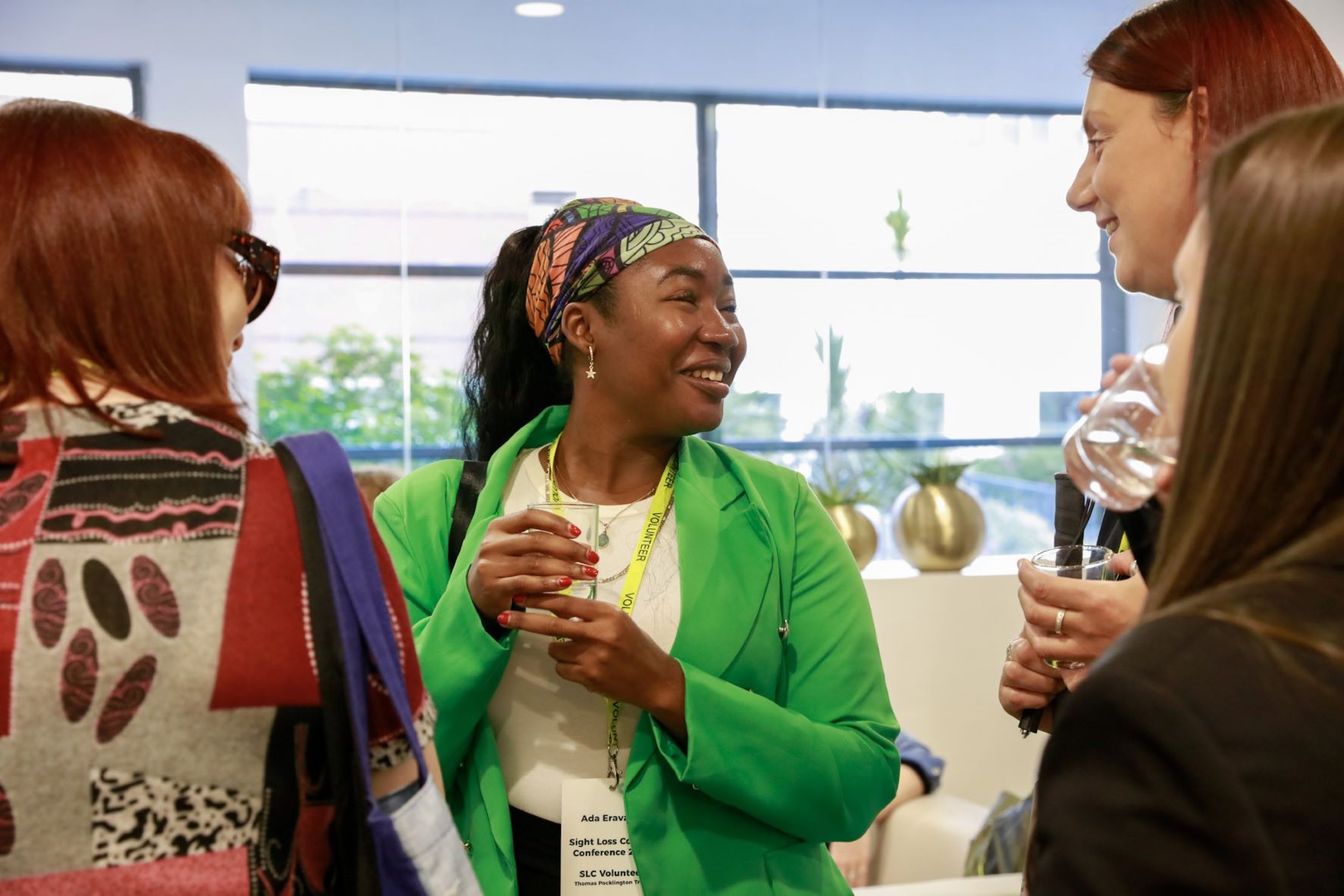Frequently Asked Questions
On this page we answer some of our most frequently asked questions about Sight Loss Councils. If you need any further information please get in touch with us.
What is a Sight Loss Council?
Sight Loss Councils (SLCs) are led by blind and partially sighted members and the engagement arm of Thomas Pocklington Trust. As members we use our lived experience to tackle local and national issues to improve the accessibility of services.
There are currently around 25 SLCs across the country. Each SLC is made up of a small group of blind and partially sighted members who meet monthly to discuss accessibility issues and plan projects in their regions.
Together we prioritise issues identified to us by BPS people locally and nationally. These priorities include accessible transport and streets so everyone can travel independently and safely, and health and fitness. We also work to increase the accessibility of museums, galleries, retail and leisure, depending on local area need.
Over the next year Thomas Pocklington Trust will extend its SLCs further across the country.
Why are they called Sight Loss Councils?
Our first model of engagement with blind and partially sighted people was called a VI Parliament. We found there were other groups which aimed to advocate for local change, such as Youth Councils, and other health related groups (which also called themselves councils). Therefore, we changed the name to mirror these groups.
How long have Sight Loss Councils been around?
TPT established a VI Parliament in 2016 in Kingston Upon Thames, London which proved to be an effective model for representing the blind and partially sighted community in that area. This led to the creation of the first Sight Loss Council in Birmingham in 2017, which built on the model of the VI Parliament and became a successful way to ensure the voices of blind and partially sighted people are heard by key stakeholders in the local community. We now have around 25 Sight Loss Councils across the country and are working with partners to expand into Scotland.
How are members selected for Sight Loss Councils?
Anyone who is blind or partially sighted and living in an area where we have a Sight Loss Council can apply to become a member. We follow a recruitment process to ensure that volunteers are recruited fairly and to ensure that applicants have the right skills to carry out the SLC member role.
Learn how you can become a member
Where do you currently have Sight Loss Councils?
You can find a list of all our current Sight Loss Councils here:
How long have Sight Loss Councils been around?
Since 2017.
What kinds of projects do Sight Loss Councils work on?
Sight Loss Councils are working on projects around the following:
- Health and fitness
- Transport
- Built environment
In addition, Sight Loss Councils are working on local projects around retail, and arts, culture or leisure, depending on local area need.
What impact are Sight Loss Councils having?
We are working to make a positive difference to blind and partially sighted people so they can live the lives they choose. You can learn about some key highlights from our work here.
Who funds the Sight Loss Councils?
National sight loss charity Thomas Pocklington Trust funds the Sight Loss Councils.
How do Sight Loss Councils collaborate with other sight loss sector organisations?
All of our Engagement Managers make links with relevant sight loss organisations in their region and establish opportunities for collaboration and partnership working, wherever possible.
What is unique about the Sight Loss Councils?
Sight Loss Councils are unique in that they are led by and for people with lived experience of sight loss.

Sight Loss Council members at our 2022 SLC conference in Birmingham
How can I get involved in my local Sight Loss Council and become a member?
Check to see if there is a Sight Loss Council in your area first by visiting: Meet the Councils and then apply using the Join Us link.
If we want a Sight Loss Council in our area, what do we do?
We are currently working towards the implementation of a medium-term growth plan for Sight Loss Councils across England. To get more information on this, please contact info@sightlosscouncils.org.uk
If you don’t have a Sight Loss Council in your area, join our mailing list to keep up to date on our developments and get invoked in our campaigns.
How do you communicate with blind and partially sighted people in each area?
- events and VI forums
- our newsletter and mailing list
- media coverage
- social media connections
- Listening month
- talking newspapers
- working with local sight loss charities and partners who connect with blind and partially sighted people in each area.
How are SLC members recognised for sharing their lived experience/ volunteering?
- satisfaction of changing things for the better
- rewards such as vouchers, or social events and celebrations.
- recognition in the form of thank yous, external award nominations, or being nominated for a Rodney Powell Volunteers Award.
Why should I volunteer for SLCs?
There are many reasons why you should volunteer for your local Sight Loss Council, including to:
- make a difference
- have a voice
- increase accessibility
- meet like-minded people
- build confidence
- training and development
- Build new skills such as influencing, campaigning, events, organisation and more, and boost their CV
- feel valued
- be part of something that is constantly growing and evolving.

